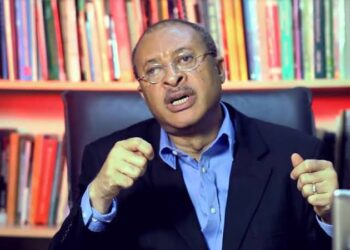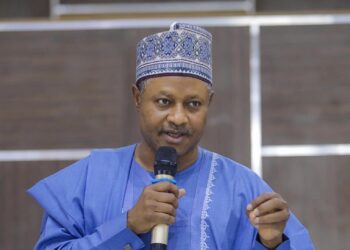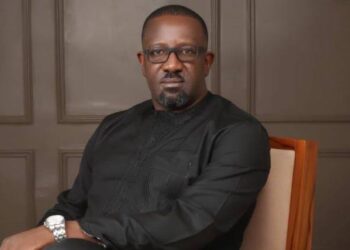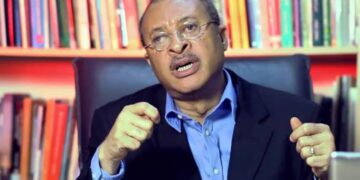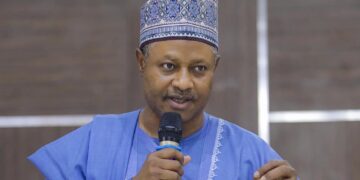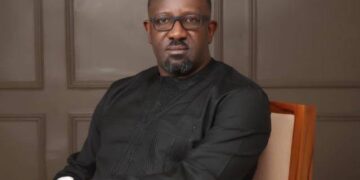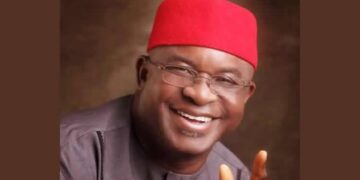Minister of Information, Mohammed Idris, says Tinubu’s economic reforms are steadily reshaping Nigeria’s struggling economy.
He made the remark in Abuja during a courtesy visit by the Nigerian Guild of Editors’ new leadership.
Idris acknowledged challenges persist but said measurable improvements are becoming visible across critical sectors of national development.
According to him, President Tinubu’s policies are “turning the corner” and helping flatten Nigeria’s economic instability curve.
He cited global credit rating agencies’ improved assessments as validation of Nigeria’s economic direction under Tinubu’s government.
Idris highlighted the removal of fuel subsidy and FX rate unification as impactful elements of Tinubu’s economic reforms.
He noted these reforms were difficult but necessary steps toward building long-term resilience and transparency in public finance.
The minister also announced over 300,000 students now benefit from the government’s newly launched Students Loan Scheme.
He said the scheme covers both tuition and upkeep—lifting poor families and encouraging education among vulnerable populations.
According to him, this student initiative reflects the social focus embedded in Tinubu’s economic reforms.
On security, Idris praised recent military gains and urged journalists to spotlight positive efforts by the Armed Forces.
He warned against media narratives that focus solely on attacks without recognizing sacrifices made by security personnel.
Idris emphasized national unity, saying the media should become a partner in highlighting progress and inspiring public confidence.
He called for balanced journalism that captures reforms’ full scope while holding power accountable without weakening national morale.
The minister described Tinubu’s economic direction as “bold, deliberate, and human-focused” in both economic and social policy.
He said Nigeria is not yet at El-dorado, but steady growth now provides evidence of the government’s intention.
Media professionals, he concluded, must serve as facilitators of truth, national dialogue, and public policy understanding.
Nigeria’s Economy Recovering Under Tinubu’s Bold Reforms — Information Minister
Steven Atogi
Steven Atogi is Editor-in-chief at Umpire News. Formerly Editor-in-chief at DreamsNG Magazine. A skilled editor, writer and researcher with over a decade experience in politics, economy, sports and entertainment news editing; feature writing, copywriting and digital news sourcing. He has published in traditional and new media across local and international media outlets. He is keen on public policy, politics, economy, and social justice themes.
Leave a Reply Cancel reply
NATIONS NEWS
POLITICS
YOUR ECONOMY
E & P
AFCON 2025: Ighalo faults Diaz’s Panenka penalty against Senegal
Former Super Eagles forward, Odion Ighalo, has faulted Real Madrid and Morocco man, Brahim Díaz, for wasting a golden opportunity...
YOUR THOUGHT & HISTORY
Who we are

Welcome to Umpire News, your go-to online newspaper dedicated to broadening perspectives and expanding the horizons of our numerous readers. Read more
Browse by Category
Recent News
What I would have done differently as president – Pat Utomi
FG did not site gold refinery in Lagos – Dele Alake replies NEF
© 2024 Copyright Umpirenews. All rights reserved



